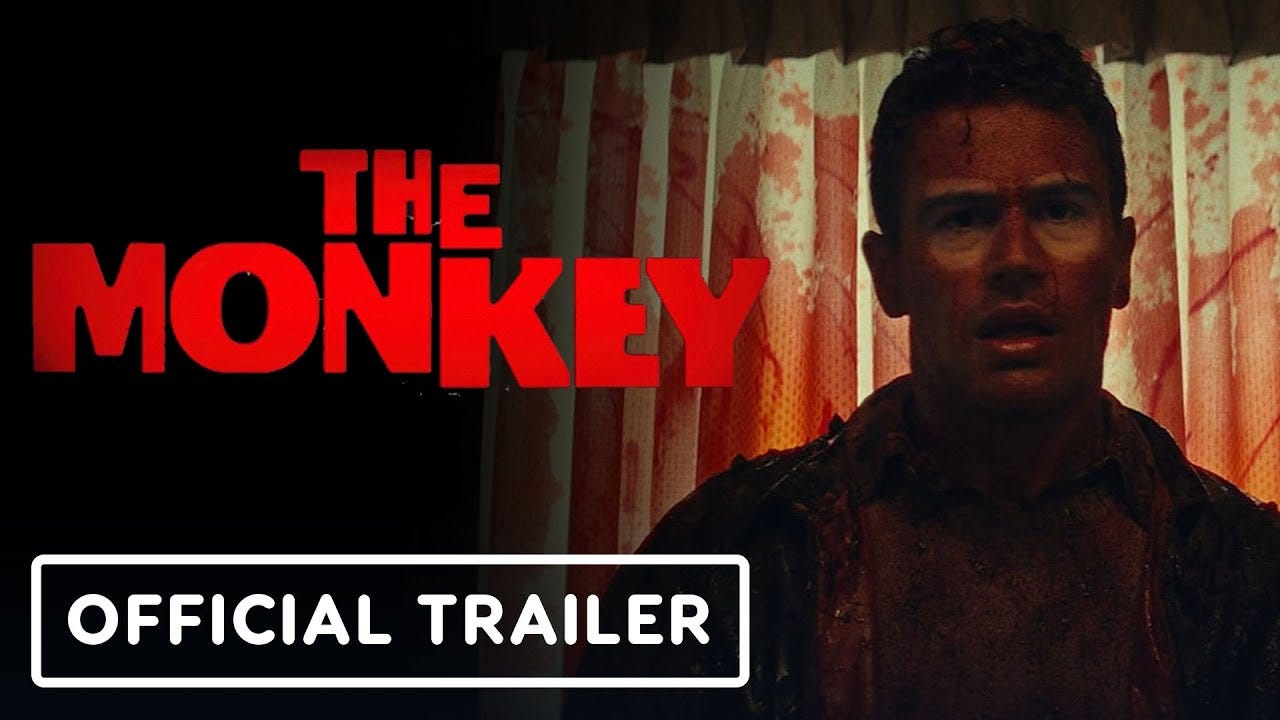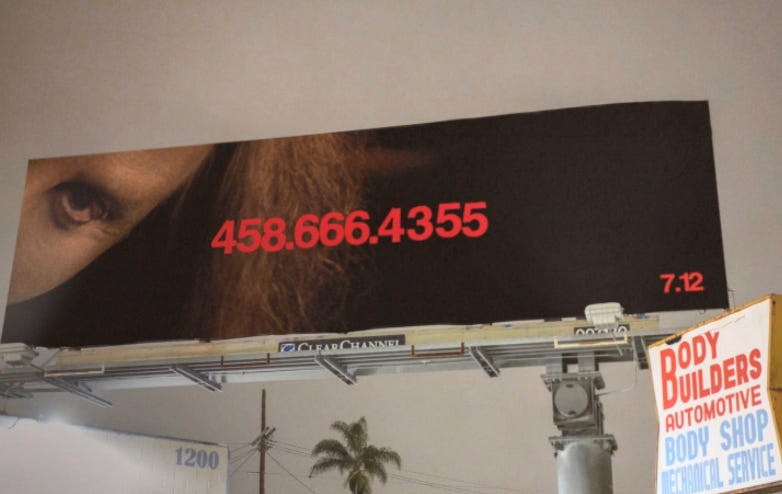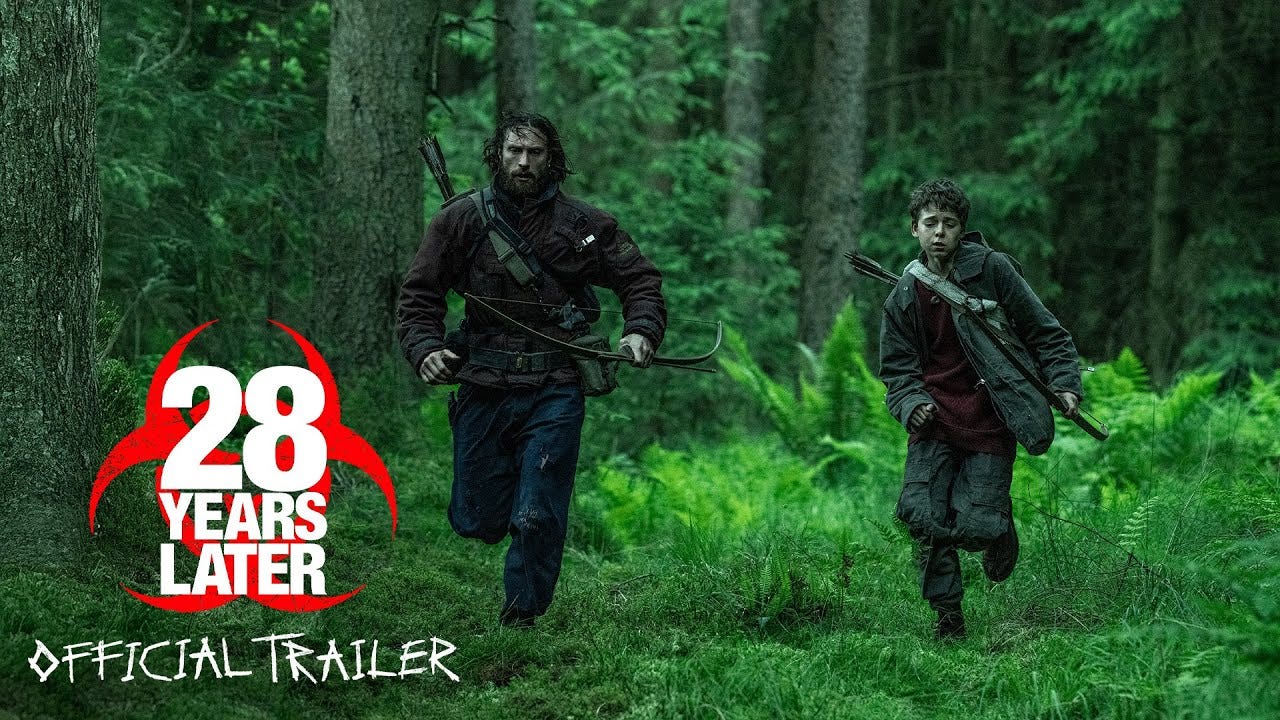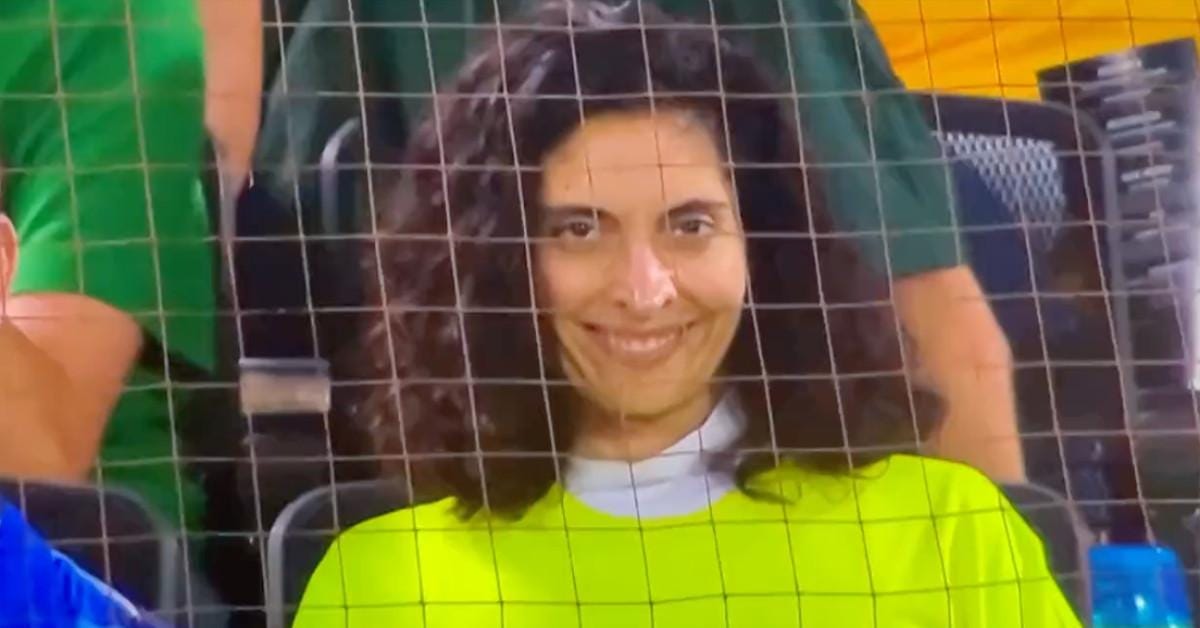From Hype to Overkill: The Problem with Modern Movie Marketing
Movie marketing should build hype, not spoil the film. Here’s how Hollywood marketing is getting it wrong, and what great campaigns do differently.
Movie marketing is a delicate balancing act. It exists to build excitement, get people talking, and ultimately drive ticket sales. But too often, marketing campaigns cross the line from building anticipation to outright spoiling the movie. A perfect example of this recently happened with NEON’s The Monkey, at least in my experience. I loved how much buzz the film was getting as an indie horror movie. The trailer became the most viewed in indie horror history, and the movie was making waves everywhere online. The problem is that almost all of the marketing materials contained what I would consider major spoilers, or at least ruined what could have been great surprises.
First off, the trailers showcased the most shocking deaths and too many promotional clips revealed funny cameos and small but memorable moments. By the time I sat down to watch the movie, I was expecting something even wilder, something so crazy they couldn’t possibly have shown it all in the trailer. But they kind of did. The trailers and marketing were over the top, and the movie couldn’t top that. As a result, my experience was far less enjoyable than it could have been. I was already anticipating every great moment, and the rest of the film didn’t have much left to surprise me.
In contrast, NEON and the same filmmaker took a completely different approach with Longlegs. That marketing campaign was a lesson in how to do it right. The cryptic, unsettling trailers played out like an interactive ARG (augmented reality game). You could call the Longlegs killer’s number and hear disturbing messages. The trailer gave just enough to establish the tone and concept but held back on major plot points or character reveals. They even kept their biggest star a secret as Nicolas Cage’s character remained a complete mystery until the film’s release, making for an incredible reveal. It was a campaign that reminded me of how The Blair Witch Project became a phenomenon through mystery, interactive audience participation, and word of mouth. This stark difference between The Monkey and Longlegs shows how much marketing can really make or break the movie-watching experience.
Unfortunately, overly revealing trailers have become a bit of a Hollywood staple. I have to assume this is due to a mix of over-eager marketing teams that want to make a splash and a widespread belief that audiences need to be spoon-fed. Some of it may be due to the lost art of the movie trailer edit, as I am sure some trailers are just thrown together with little thought. Some studios seem to believe that if a trailer doesn’t lay out the entire plot, people won’t show up. But the result of all of that thinking stinks. Three-minute trailers that give away every major twist, leaving only minor details for the audience to "fill in" over the course of a two-hour movie, have ruined far too many movies for me. I love trailers and the art of the tease, but now it feels like a minefield to avoid the ones that will ruin a film.
They aren’t all bad. I thought the recent trailer for 28 Years Later was brilliant, mixing just enough intrigue with a highlight of the major stars and basic plot, all sewn together with the terrifying narration of Rudyard Kipling’s poem Boots. I also think that certain movies don’t need the intrigue and mystery and a standard, exciting trailer is fine. But even something that was likely going to be a no-brainer hit like Barbie has an excellent trailer that helped rather than hurt the film. Paired with their marketing campaigns, it was a slam dunk.
But the true film fans, the ones who rush to theaters for smaller movies like Longlegs, want something better. They want mystery, engagement, and surprises. They want to think, to theorize, to be part of the experience. A well-crafted trailer should intrigue, not summarize. It should leave questions unanswered, not give everything away. It should make you excited to see the film, not feel like you already have.
Looking at older movie trailers, they were often much better at walking this fine line. They introduced the actors, the creative team, the setting, and the basic premise, but they kept their shots quick and their reveals to a minimum. The kicker is that they were designed for movie theaters, not for YouTube and social media. As the way we consume movie marketing has changed, so has the approach. As a marketer myself, I understand that virality is always the goal. If you work in marketing, you know we have all had an executive or sales team come to us with an idea and tell us to “make it go viral”. But you can’t force it. A great campaign becomes viral naturally. It’s a byproduct of smart, engaging, and creative marketing, not something you can manufacture on demand.
Horror movies, in particular, have some of the best marketing strategies in the industry in my opinions. Maybe I am biased as a horror fan, but because they often operate on lower budgets, they have to get creative, and that creativity leads to campaigns that genuinely connect with audiences. David Howard Thornton in character as Art the Clown showing up at a Spirit Halloween store? Perfect. Calling the Longlegs killer from your own phone? Creepy and immersive. Smiling fans placed in the stands at the World Series to promote Smile? Brilliant. These campaigns weren’t driven by massive ad buys or celebrity influencers with millions of followers, they were built by passionate marketers, filmmakers, and actors who knew how to engage horror fans where they already were.
Meanwhile, major studios often spend millions getting huge influencers to post about a movie or attend a red carpet, only to see no real impact. Why? Because views and clicks don’t equal ticket sales. A massive influencer posting about a generic big-budget movie isn’t going to move the needle. You might get 10 million views, but is anyone getting their film recommendations from them? No hate to them - I hope they get their bag and get paid for the audience they built, but I just wouldn’t be swayed personally by that because it is far outside their niche.
On the flip side, there are so many content creators who truly love movies and focus on that. Some of it is organic, some is paid, but either way, you know its coming from someone that actually cares. Audiences trust them and they connect with them. Their content may not get as many likes as a massive influencer’s post, but it has real value.
If Hollywood wants to fix its marketing problem (and really every industry, to be honest), it needs to stop chasing empty clicks and start focusing on real engagement, intrigue, and creativity. Oh yeah, and stop blaming audiences for not showing up to the theater when you give away the movie in a 3 minute trailer. If I’ve already “seen” the movie, why would I bother buying a ticket? Do more with less, and everyone, audiences, filmmakers, and even the studios themselves, will be better off for it.







Spot on article! Feel very similar as a love of movie trailers.
Some of my favourite trailers are the ones that just show the opening scene of a movie